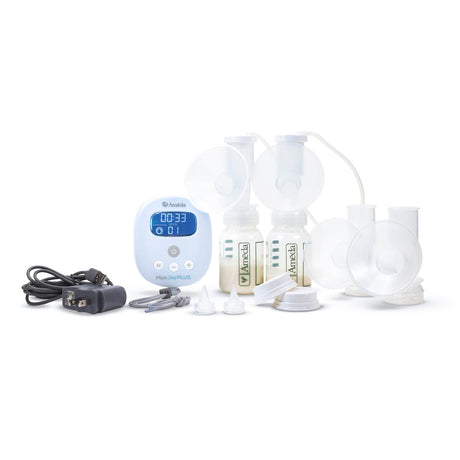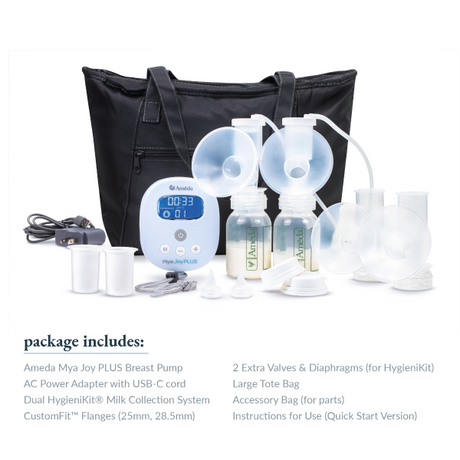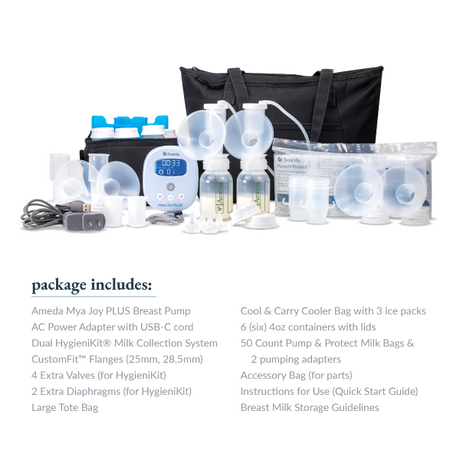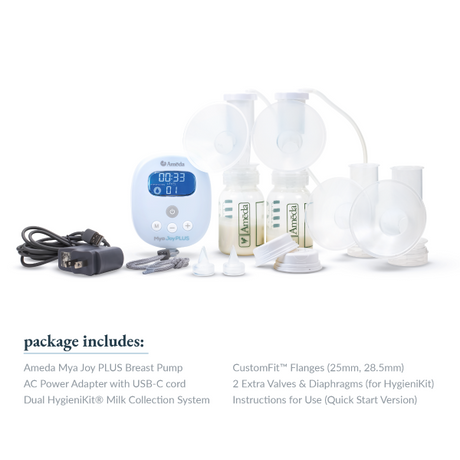Published:
As September unfolds, it brings with it a heightened sense of awareness and advocacy, marking the arrival of NICU (Neonatal Intensive Care Unit) Awareness Month. This designated time is a heartfelt tribute to the families treading the path of NICU stays, the dedicated healthcare professionals who tend to them, and the infants who begin their lives facing challenges of a unique nature. With unwavering solidarity, Ameda proudly stands alongside NICU parents, nurses, and all individuals involved in this delicate and pivotal phase of existence.
The moment approaches when you discover that your preterm or hospitalized baby is nearing the point of stepping out from the NICU into the embrace of home. What must you prepare for, to ensure the seamless continuation of your breast pumping and feeding journey with your little one? Typically, your routine will encompass a blend of breast pumping and breastfeeding, as your baby progresses in growing and refining their ability to latch on and draw nourishment from the breast.
Essential Preparations
1. Reliable Breast Pump: The significance of a good breast pump remains as paramount as it was during the time your baby resided in the hospital. As your baby's homecoming approaches, maintaining a robust milk supply requires consistent pumping. Often, mothers persist with the hospital-grade pump they employed while their baby was in the NICU. This steadfast approach ensures that by diligently pumping, you're able to meet your baby's escalating milk demands. Key features to seek in a breast pump include:
a. Hospital-grade capabilities
b. Electric functionality
c. Rechargeable options
d. Portability and lightweight design
e. Availability of multiple flange sizes
2. Milk Storage Solutions: The choice between milk storage containers and bags hinges on various factors, including your milk production volume and whether your baby remains in the NICU or has returned home. For substantial milk production, a combination of containers and bags could be prudent—employing containers for fulfilling daily hospital demands and reserving bags for future home use.
a. Milk Storage Containers: For NICU days, these containers continue to be favored, as hospitals often find them sturdier for their storage units. At home, they remain practical when feeding from the fridge. Remember to label them with the date and time, leaving room for expansion during freezing.
b. Milk Storage Bags: Stock up on these for organizing and storing milk at home. Label bags with dates and arrange them in the freezer for optimal organization. Prioritize usage based on the oldest dates to manage your milk supply effectively.
3. Nurturing Soothing: Amid the care you provide for your baby, it's essential to consider your own comfort. Soreness can sometimes arise after pumping or breastfeeding, necessitating attention. Consulting a lactation consultant to explore potential reasons like flange size or latch adjustments is advisable. For comfort, consider these soothing aids:
a. Hydrogels: Post-pumping or breastfeeding application offers cooling relief, protection from discomfort, and an optimal environment for healing.
b. Lanolin: A soothing, natural ointment for easing soreness after pumping or breastfeeding.
Amidst the mix of excitement and stress, remember to exercise patience as you and your NICU baby embark on this journey. Equipping yourself with the essential breast pumping and breastfeeding supplies can significantly alleviate the transition's strain when your NICU baby finally comes home. Congratulations as you embrace this new phase of your parenting voyage!
Ameda: A Pillar of NICU Support
Ameda extends beyond being a mere product provider, evolving into a pillar of support for the NICU community. Our website houses a treasure trove of resources, from breastfeeding tips to emotional sustenance, crafted to aid new mothers in navigating the intricacies of NICU life. We fervently encourage all those acquainted with NICU parent to extend their support in whatever capacity they can.









